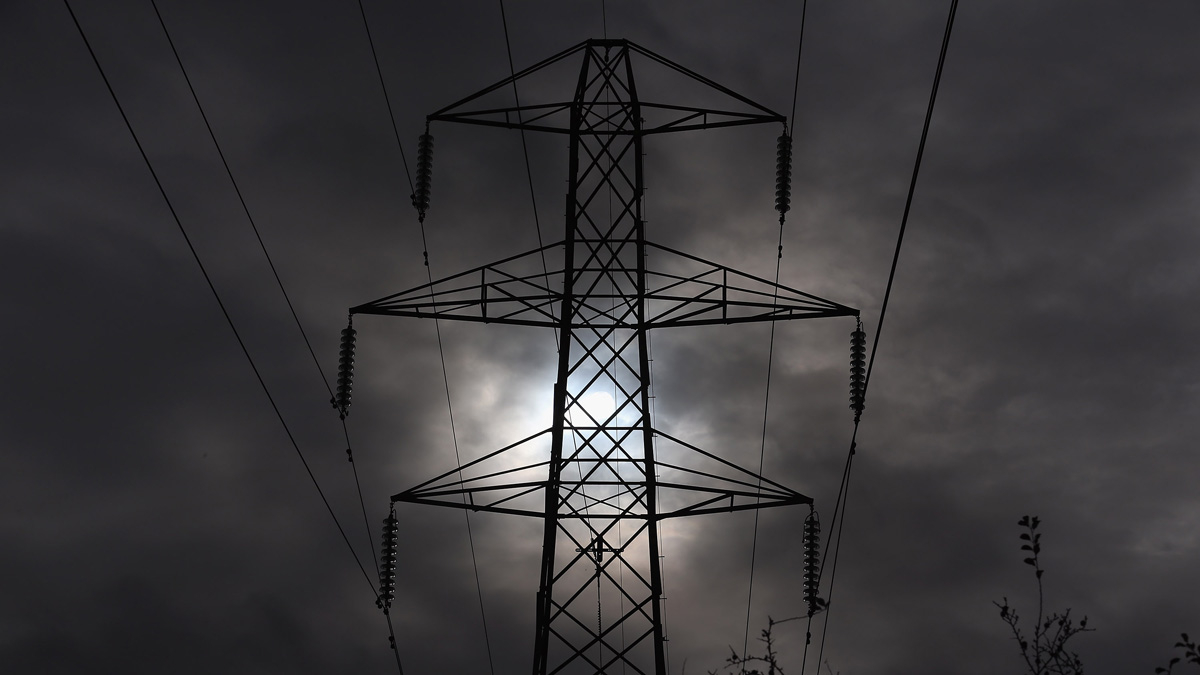National Grid: will Tories nationalise the energy system operator?
Ministers are considering a range of options, including an independent, public-owned company

A free daily email with the biggest news stories of the day – and the best features from TheWeek.com
You are now subscribed
Your newsletter sign-up was successful
As concern grows over the UK's energy security, it has emerged that the government is considering stripping a key system-operator role from National Grid and handing it to a public-owned body.
That sounds a bit like a nationalisation?
It does, doesn't it? But it's not quite that simple.
The Week
Escape your echo chamber. Get the facts behind the news, plus analysis from multiple perspectives.

Sign up for The Week's Free Newsletters
From our morning news briefing to a weekly Good News Newsletter, get the best of The Week delivered directly to your inbox.
From our morning news briefing to a weekly Good News Newsletter, get the best of The Week delivered directly to your inbox.
National Grid is a private company formed from the split of the Central Electricity Generating Board in 1990 and was fully privatised along with the regional power companies that were handed ownership in the subsequent years. It listed on the London Stock Exchange in 1995. The company is both the system and network operator of the UK's power grid.
What is being proposed is a public-owned, not-for-profit company takes over the "system operator" role. It would "manage the country's electricity supplies, switch off factories and request emergency back-up generation" to prevent blackouts, says The Times.
So National Grid would remain private?
Yes, but it will be stripped of key powers to oversee a network from which it derives big profits. That's no bad thing, say its critics, and is, in fact, the main reason the reforms are being considered.
A free daily email with the biggest news stories of the day – and the best features from TheWeek.com
National Grid is said to have major conflicts of interest. In particular, says The Guardian, it "owns many of the country's electricity transmission lines and pipelines… [and] has a financial interest in supplying ever larger volumes of power rather than encouraging demand reduction, which is another way of preventing power shortages and keeping the lights on".
The Times also cites its huge investments in the new cables that will quadruple the UK's power importing capacity at a time when "virtually no new power stations are being built" at home.
How would a new oversight regime work?
There are a few options, by all accounts, but the one ministers are thought to be "leaning" towards is a model similar to that used for Network Rail: the company would be independent of government but publicly owned and overseen at arm's length by Ofgem, the industry regulator.
"This option maximises independence of the system operator both from market participants and government. It is the approach taken by the majority of [other countries] and has been demonstrated to work well," says a report outlining the proposals.
What does National Grid think?
Well, understandably it is not keen on the plans and rejects any notion that it has conflicts of interest.
"We take very seriously the need to provide confidence that any potential conflicts of interest are properly managed and have a lot of experience operating in an environment where this is a key part of what we do," it said. "We will continue to work closely with government and regulators to proactively manage potential conflicts as our role develops."
The Department of Energy and Climate Change said it was looking at various options for changing the way the system worked. "There is a strong case for greater independence for the system operator to promote more competition in our electricity system," it added.
National Grid lines up £10bn gas sale
09 November
National Grid could be set to complete the disposal of its gas distribution assets, in a deal that could raise as much as £10bn.
The Sunday Times says the company, which manages most of the UK electricity network, is mulling plans to sell gas businesses that service close to 11m people in north London, the Midlands and northwest and eastern England. The review has been prompted by "rampant demand for infrastructure assets from foreign investors", but has not yet progressed to the appointment of advisers.
National Grid acquired most of the UK's gas distribution network in 2002 when it bought Lattice Group, the owner of one-time gas monopoly Transco. In 2004 it sold half of the assets, covering customers in Scotland, southern England and Wales, for £5.8bn. The buyers included Hong Kong tycoon Li Ka-shing, Australia's Macquarie, Scottish & Southern Energy and United Utilities.
According to the paper, National Grid might use some of the sale proceeds to upgrade the electricity grid, which is coming under intense strain as capacity issues begin to bite. The UK is closing old coal-fired power stations to meet carbon reduction targets and is facing delays getting new nuclear stations on-stream, which could leave the network short in the event of a cold winter.
The Financial Times reports that a full-blown emergency was averted last week when the grid asked industrial users to reduce usage after an unexpected outage.
One solution to the capacity crunch could be to extend demand-side measures used by the grid — "or, put simply, to manage energy usage better". Simon Virley, UK chairman of energy at KPMG, told the FT: "We have to find ways to manage demand more actively and avoid having power stations being paid just to cope with the teatime peak."